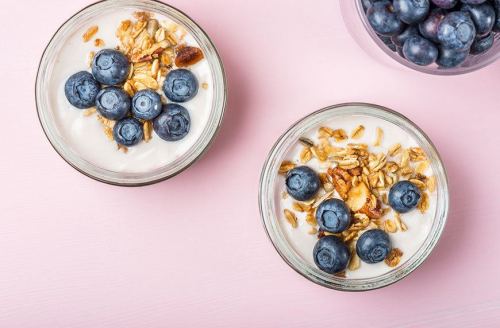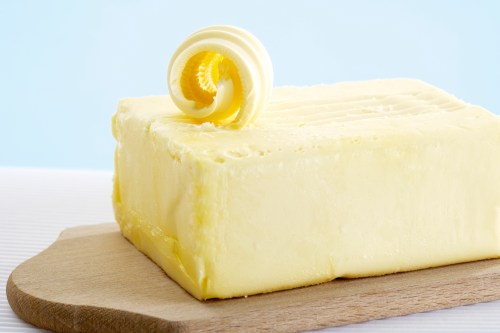Tonic has long been a happy hour staple, there to dilute vodka, gin, and other spirits into easy, two-ingredient cocktails. On the surface, tonic-based drinks sound relatively healthy. (You know, as far as something with booze in it goes.) It doesn’t have the sugar bomb reps that margaritas and daiquiris carry, and its name implies that it’s essentially H2O—and we all know how important hydration is. Plus, doesn’t the word tonic imply that it’s some sort of healthy elixir, anyway?
Experts in This Article
registered dietitian nutritionist based in New York
With the rise of all kinds of water beverages, think sparkling waters, moon water, coconut water, hydrogen water, seltzers, you name it, more folks may be starting to wonder about tonic as a bev outside of happy hour, too. Sparkling water, seltzer, club soda, and tonic water all seem similar; the drinks themselves may be clear but the difference between them is more murky. Here, registered dietitian Chelsey Amer, RD, explains exactly what tonic water is, tonic water benefits, and what you should know about the drink before saying, bottoms up!
What exactly is tonic water anyway?
Let’s delve into the ingredients (and, no, it’s not just water). In fact, you may be surprised to learn that tonic water has a lengthier ingredient list than you may expect. “Tonic water is a combination of carbonated water, quinine, sugar or high fructose corn syrup, and sometimes flavorings,” Amer says.
What is quinine?
Never heard of quinine? It’s a bitter compound that’s sourced from cinchona tree bark. Cinchona trees are primarily grown in the Caribbean, South America, Central America, and parts of Africa. Originally, quinine was used in these regions medicinally as a way to fight malaria. But its bitter taste is what made it a popular ingredient for tonic. However, it’s important to note that some folks may experience allergic reactions when consuming quinine. Additionally, it may also interact with certain medications. As such, it’s always best to consult a medical professional if you have any doubts or concerns regarding whether or not tonic water (or quinine) is right for you.
A few common tonic water misconceptions
In case it wasn’t clear (pun intended) already, tonic water is a bit different from club soda and sparkling water. While tonic water is made from the aforementioned combo of carbonated water, quinine, sugar or high fructose corn syrup and (sometimes) flavorings, club soda is carbonated water with added minerals such as sodium bicarbonate, sodium citrate, and potassium sulfate. Sparkling water is simply carbonated water. If the carbonation is naturally occurring, it’s sparkling water. If the carbonation is artificial, it’s technically seltzer. (But at that point, kind of feels like splitting hairs…)
What does tonic water do for your body?
Now that we’ve established that tonic water is clearly not the same as carbonated water or club soda, it’s ingredients don’t exactly make it a top contender for healthiest sparkling water, either. “Although it sounds like water, tonic water actually contains a decent amount of sugar. One serving—11 fluid ounces—of tonic water contains 30 grams of sugar.” (The goal is to keep added sugar under 25 grams a day, according to the American Heart Association.)
What are the pros and cons of drinking tonic water?
About the only true health benefit of tonic water is that since it’s a liquid, and it technically can be somewhat hydrating. But Amer says that since it’s very high in sugar, the nutritional cons will likely outweigh the tonic water benefits in most cases. “I don’t recommend choosing beverages with added sugar to meet your daily hydration quota,” she says. Basically, tonic water shouldn’t be used as a water alternative. But if you like drinking tonic water, like in your favorite cocktails, Amir says it’s best to enjoy it in moderation.
Again, one serving of tonic water exceeds the amount of added sugar recommended for the whole day. That said, there are also diet tonic waters on the market that use artificial sweeteners such as aspartame or saccharin. Unfortunately, Amer notes these ingredients come with their own set of potential side effects. “An animal study also found long-term consumption of saccharin to be tied to impaired liver and kidney function1, but again these findings have not been shown in humans,” registered dietitian Christina Manian, RD, previously shared with Well+Good.
Additionally, Manian notes that another study published in Diabetes Care found that diet soda consumption (made with aspartame) was linked with an increased risk of metabolic syndrome and type 2 diabetes2. Similarly, the high-fructose corn syrup (a fructose-glucose liquid sweetener) that can be in tonic water isn’t ideal, either. Like sugar, consuming high-fructose corn syrup regularly is linked to metabolism issues3.
There are also important risks associated with consuming too much tonic water regularly. “As with any source of added sugar, over-consuming it can lead to avoidable chronic diseases, like heart disease, and diabetes,” Amer says. It’s also worth noting that it’s highly unlikely that you’ll get any meaningful health benefits from quinine, because it’s present in such small amounts in modern-day tonic water, says Amer. In fact, consuming too much quinine can have the opposite effect. “When over-consumed [it] can lead to unwanted side effects like nausea, stomach cramps, and more,” she says.
The verdict on tonic water
As you can see, the health and nutritional benefits of tonic water aren’t plentiful, and tend to get outweighed by the high amounts of excess sugar per serving. That’s to say, there are better sources for maintaining hydration on the day-to-day (think fiber and water-rich foods like cucumber, watermelon, and even lettuce). However, Amer says, like almost everything in life, it can still be enjoyed in moderation. So if gin and tonics are your drink of choice, go for it. But if you do want to find a potentially better-for-you swap, she recommends switching out your tonic for sparkling water, which has the carbonated fizz—without the sugar. A win-win.
Of course, keeping up with hydration isn’t always easy, especially as your needs begin to change as you age. In case you didn’t know, the older you get, the harder it is to maintain hydration levels. Sigh. What’s more, if the main reason you were reaching for tonic water in the first place was because you find good ol’ H2O just plain boring (you’re so not alone), there are simple, healthy ways to jazz up your hydration habits, too.
One way is to experiment with different infusions, using fruit (like berries, lemon, or lime), veggies (like cucumber), and herbs (such as mint). Or noshing on foods high in electrolytes to keep your brain, heart, and muscles functioning at their best by counteracting dehydration with the minerals integral for operating smoothly. Remember, inadequate hydration can quickly lead to dehydration and electrolyte imbalances, typically resulting in symptoms such as irregular heart rhythm, fatigue, malaise, altered mental status, headache, dizziness, and muscle spasms, as well as, headaches, brain fog or confusion, fatigue, mood swings, lightheadedness, and dizziness.
TL;DR? Tonic water shouldn’t be your ultimate source of hydration, rather it should be something consumed in moderation every now and then. Ultimately, it’s all about finding the right balance, fam. And, no, tonic water, isn’t the same as club soda, carbonated water, or seltzers for that matter.
Discover a registered dietitian’s top foods for maintaining hydration:
Azeez, Omar Hasan et al. “Long-Term Saccharin Consumption and Increased Risk of Obesity, Diabetes, Hepatic Dysfunction, and Renal Impairment in Rats.” Medicina (Kaunas, Lithuania) vol. 55,10 681. 9 Oct. 2019, doi:10.3390/medicina55100681
↩︎Landrigan, Philip J, and Kurt Straif. “Aspartame and cancer – new evidence for causation.” Environmental health : a global access science source vol. 20,1 42. 12 Apr. 2021, doi:10.1186/s12940-021-00725-y
↩︎White, John S. “Straight talk about high-fructose corn syrup: what it is and what it ain’t.” The American journal of clinical nutrition vol. 88,6 (2008): 1716S-1721S. doi:10.3945/ajcn.2008.25825B
↩︎
Sign Up for Our Daily Newsletter
Get all the latest in wellness, trends, food, fitness, beauty, and more delivered right to your inbox.
Got it, you've been added to our email list.











